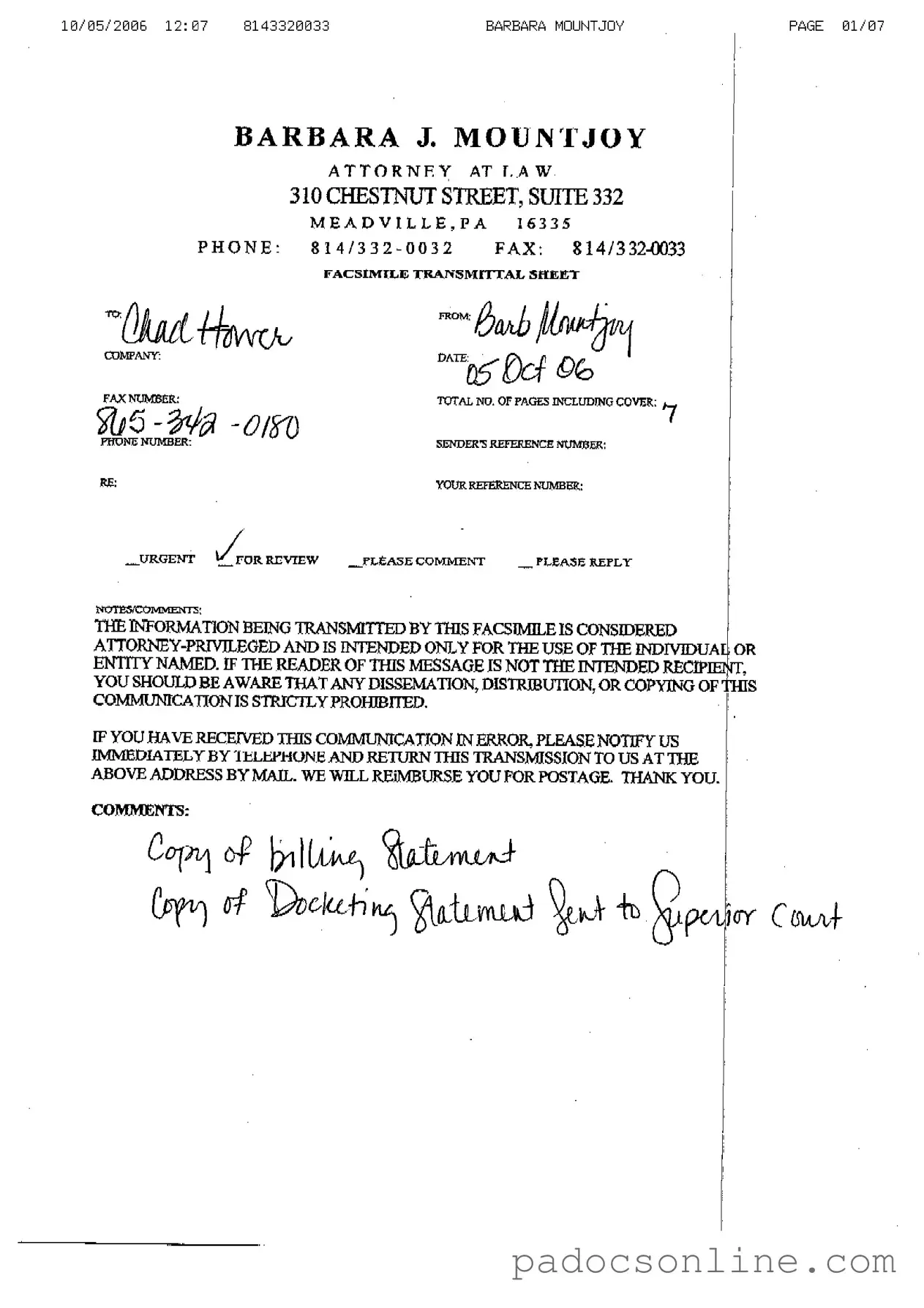Filling out the Docketing Statement Civil Pennsylvania form can be tricky. Many people make common mistakes that can lead to delays or even rejection of their appeal. Here are seven mistakes to watch out for.
First, not checking the right boxes can cause confusion. The form has specific sections where you must indicate the type of case and whether the appeal is timely. If you overlook a checkbox or select the wrong option, it may lead to complications. Always double-check your selections before submitting.
Second, failing to provide complete information can be a significant issue. Each section of the form requires specific details. For instance, if you skip the case caption or the Superior Court Docket Number, it can create unnecessary delays. Make sure to fill in all required fields accurately.
Third, people often forget to attach necessary documents. The form requests copies of the notice of appeal, the trial court’s judgment, and other relevant documents. If these are not included, your appeal may not be processed. Remember, completeness is key!
Fourth, some individuals misinterpret the rules about final orders. If you are unsure whether your order is final, it’s essential to clarify this before submitting the form. Misstating the nature of the order can lead to complications down the line.
Fifth, overlooking deadlines is a frequent mistake. The form specifies that it must be returned to the Prothonotary by a certain date. Missing this deadline can result in losing your right to appeal. Keep track of all important dates related to your case.
Sixth, not providing a clear explanation of how issues have been preserved can hinder your appeal. This section is critical for demonstrating that you have followed proper legal procedures. Be thorough and precise in your descriptions.
Lastly, neglecting to notify the Prothonotary if this is not a Family and Domestic Relations appeal can lead to confusion. If your case falls outside this category, it’s crucial to inform the court so that you receive the correct form. Clarity in communication can save you a lot of trouble.
By being aware of these common mistakes, you can improve your chances of a smooth filing process. Take your time, review your work, and ensure all details are correct before submitting the Docketing Statement.
